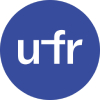P.O.Box 79085, Freiburg, Germany
Career Counselling

Albert Ludwigs Universitaet Freiburg is the fifth oldest institution of higher education in Germany, located in the city of Freiburg in the southwestern part of the country. It is home to over 24,000 students, with approximately one fifth of them coming from outside Germany.
The University of Freiburg has three campuses, all within the city of Freiburg. The main campus is located in the center of the city and is filled with historic buildings, administrative offices, and large classrooms. The North campus hosts the Faculty of Natural Sciences; it has ...
| Establishment year | 1457 |
| Total Students | 24,240 |
| International Students | 4,349 |
| QS World University Rankings 2024 | =192 |
| Campus Size | N/A |
| Total Number of Campuses | 3 (Main, Natural Sciences, Engineering) |
| University Website | https://uni-freiburg.de/en/ |
| No. of Schools and Divisions | 11 Faculties (containing 100 Institutes and Departments) |
| Nobel Prize Winner Alumni | 22 (including researchers) |
| No. of Education Programs | 113 (undergraduate), 130 (Master’s) |
| Student to Faculty ratio | 5.4:1 |
Albert Ludwigs Universitaet Freiburg offers undergraduate and postgraduate courses through 11 Faculties, which are further subdivided into Departments and Institutes.
Applicants to undergraduate degree programs of the University of Freiburg must satisfy the following criteria:
Applicants to Master’s programs must satisfy similar criteria, with the difference that they must have a valid undergraduate degree from a recognized institution of higher education. Many postgraduate programs have additional criteria - for example, professional experience, creative portfolio experience, or appearance at a University entrance examination. Doctoral applicants must additionally possess a letter of acceptance from a Faculty Supervisor.
The first step in the admission process is going through the list of programs and checking if the applicant satisfies all the eligibility criteria. International students (to both undergraduate and postgraduate programs) must submit their applications via the online University portal. The window for application is open between June 1 and October 5 every year. Only online applications are submitted; all documents must be scanned, certified, and then uploaded. In case the original language of any document is not English, German, or French, it must be officially translated (via the German Embassy) into either English or German before it is uploaded. The following steps are involved in the admissions process:
Though Albert Ludwigs Universitaet Freiburg is a German State Higher Education Institution, it charges students from outside the European Union study fees of 3,000 Euros per year. This need not be paid by domestic students. However, all students must pay the semester fees twice a year. The semester fees are 180 Euros per semester. This amount includes:
The living cost for students in Freiburg ranges from 700 to 1,000 Euros per month, depending primarily on the type of housing chosen. Low cost student dormitories charge 300 Euros per month, on average, with private housing rents often exceeding 500 Euros. Food costs range from 200 to 300 Euros per month, with other costs (transportation, shopping for personal items, and study materials) rarely exceeding 100 Euros per month.

Albert Ludwigs Universitaet Freiburg does not have one central campus; its buildings are distributed in and around the city center, with some sports facilities and new laboratories located on the outskirts. The campus is notable for its historic buildings, some dating back several centuries. In recent years, a push to further improve academic locations has led to ultramodern classrooms and research buildings. The city of Freiburg is located close to the French border with Germany, and students have several opportunities to travel to different European countries located a few hours away.
Most Faculty buildings have large grounds between them, and these are important social areas, with large numbers of students found in the fields during lunch breaks and in the evenings. The grounds also host sports fixtures, with areas set aside for cricket, football, volleyball, and frisbee. Sports clubs allow students to hone their skills and access world class coaching facilities. Elite athletes of the University are able to represent it at regional and national college level competitions.

Most monthly and annual events are related to arts and culture, in the fields of music, dance, drama, and debating. They are primarily organized by student associations of the University, but students also have access to city events, including symphonies and book events, at a reduced cost using their identity cards. One of the most unique events on campus is the yearly Robot Competition, where hundreds of students create robots which take part in races and fights, and thousands of members of the University community gather to watch.
Several departments have scholarships for their Master's students, both domestic and international. One of the most prestigious such awards is the Christoph Rüchardt Scholarship, with five recipients chosen every year. It was instituted by businesses located in the state, and is based on exceptional undergraduate academic performance, along with a history of social work. Recipients are awarded 200 Euros every month for one year. The application window opens every October, and the three main components are UG transcripts, letters of recommendation, and a motivation letter.
The main scholarship that is open to all international students, both undergraduate and postgraduate, of the University is the Deutschland Stipendium. This is associated with an award amount of 300 Euros per month, 50% of which is paid by the German Government, with the balance being paid by corporate sponsors. Students are selected based on academic merit and future potential. The scholarship is normally awarded for a period of one year, starting with the winter semester, with extensions being granted in cases of exceptional excellence or financial need.
The University of Freiburg offers the Studienbeihilfe Scholarship to international students who have completed at least four semesters of study. This is awarded based mainly on financial need, with academic performance taken into account as a secondary criterion. The amount of scholarship is variable, and depends on both the extent of financial need and the total number of awardees.
